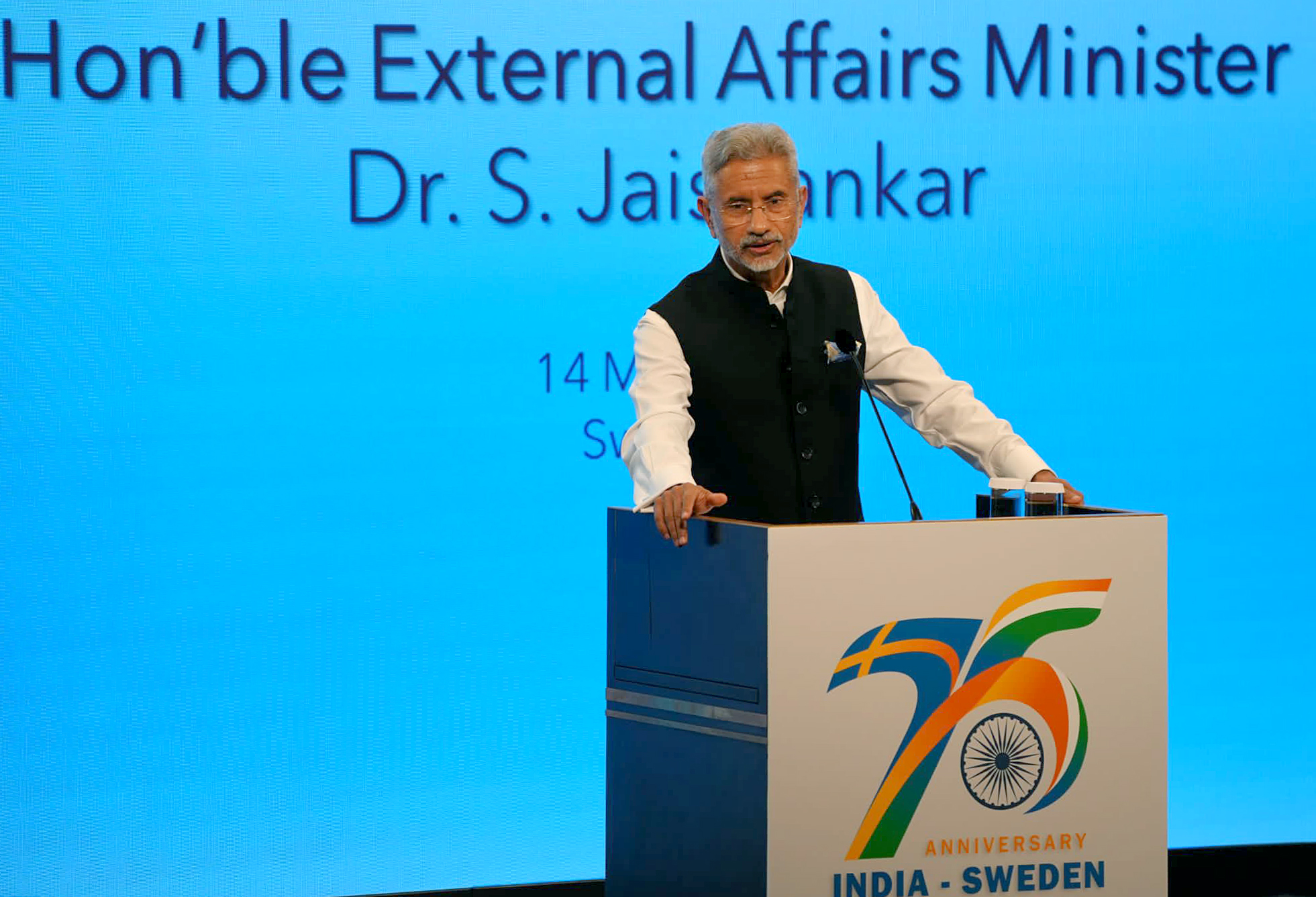External Affairs Minister S Jaishankar has taken a dig at those opposing the UN reforms, saying those who are beneficiaries of the old system are resistant to that change as they feel it would “dilute” their positions of privilege.
Jaishankar, who is on a three-day visit to Sweden, interacted with the Indian community in this Scandinavian country on Sunday and highlighted the transformations underway in India during his visit to Stockholm for bilateral talks and the European Union (EU) Indo-Pacific Ministerial Forum (EIPMF).
Responding to a question if he sees any potential for India to become a permanent member of the Security Council, Jaishankar said that the effectiveness of the United Nations has come under question with each passing year and for the good, it should be reformed. “The UN was designed in the 1940s at a time when though India was an original signatory to the Charter, but India was not an independent country. And at that time the five countries who are still today permanent members of the Security Council, they kind of selected themselves,” he said.
India has been at the forefront of the UN to push for an urgent long-pending reform of the Security Council. India has emphasised that it rightly deserves a place at the UN high table as a permanent member. The five permanent members are Russia, the UK, China, France and the United States and these countries can veto any substantive resolution. There are also 10 elected non-permanent members who serve two-year terms. India completed its tenure as a non-permanent member of the Council in December last year. “Now, the problem today is like any, any institution, those who are previous beneficiaries are resistant to that change, which they feel would in some way, dilute the positions of privilege. Now, some of them may be more so some of them less so I think the wiser ones will say okay, life is changing. Let me change with it,” he said.
He said that during the reform process, some countries will say it is useful for them to have a country like India, and there would be others who may not oppose the country openly but through their actions and policy would try to ensure that the status quo is maintained. He said reforming an organisation which has more than 190 nations as members is very hard.
“So even sitting in the room to discuss it itself is a challenge,” he said. He said that reforms are needed as there is today no African country as a permanent member, there are no Latin American countries. “So, even for the good of the UN, it is so I’m not even taking an Indian viewpoint, I would say globally…For the good of the UN should be reformed,” he said. “But, you know, it will be kind of a tussle between the reformers and those who are obstructionist. But I’m pretty confident that with each passing year, I’ve seen the sentiment for reform grow stronger. So when it will happen, I can’t see but I can say the needle is moving in the direction of that,” he said.







